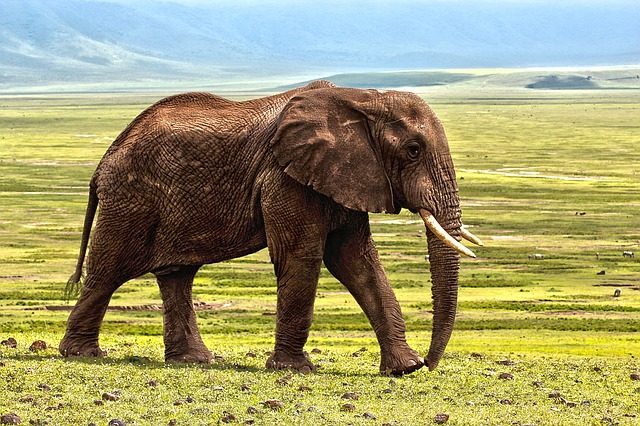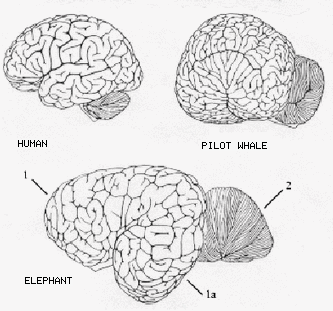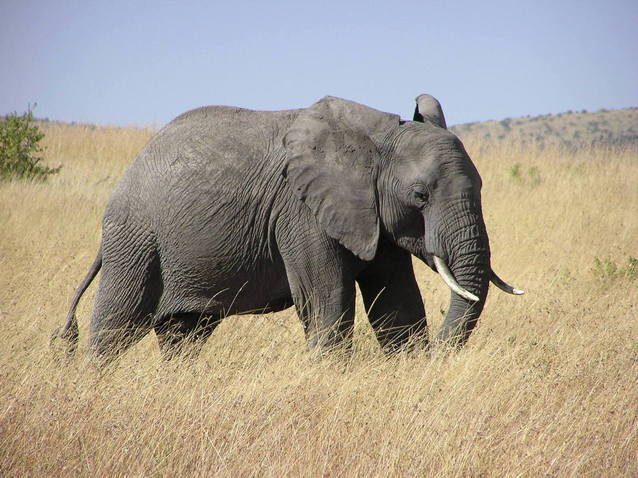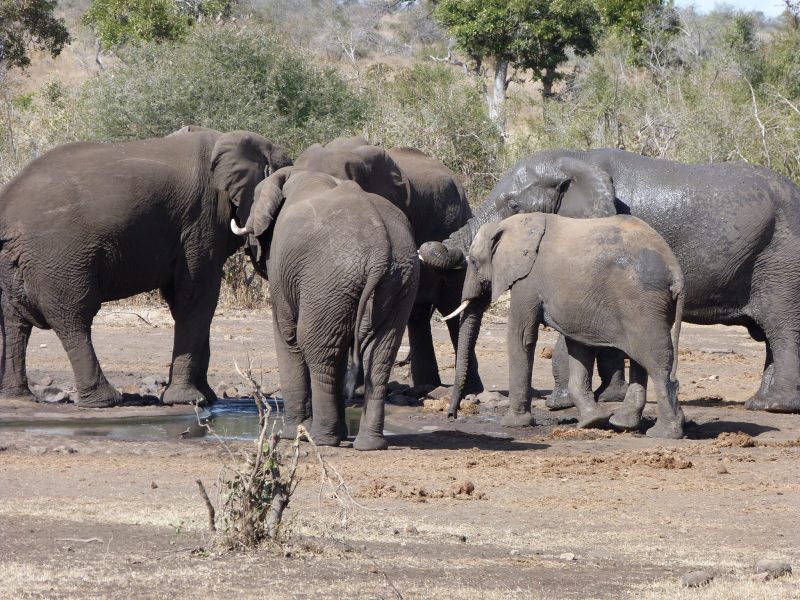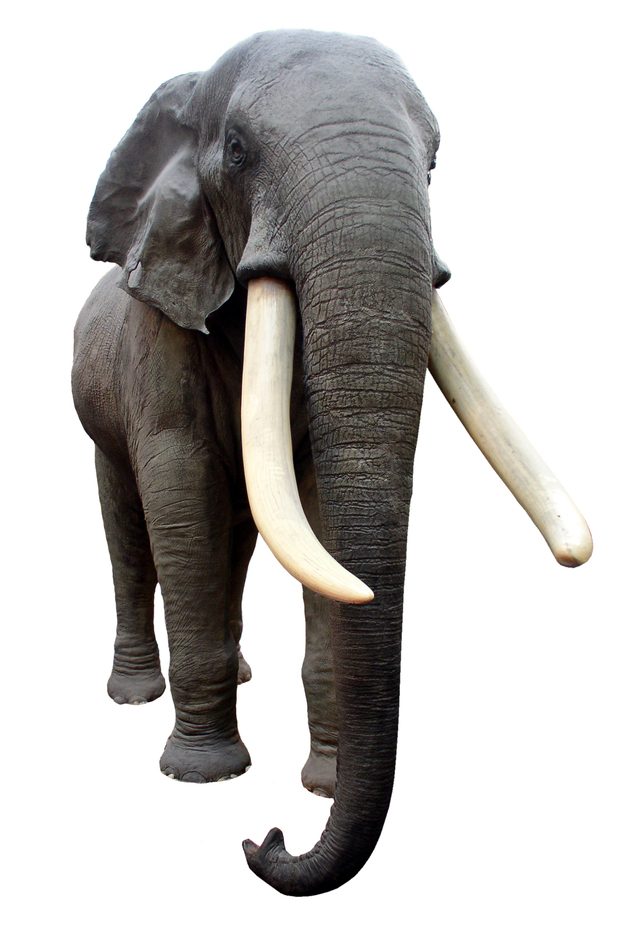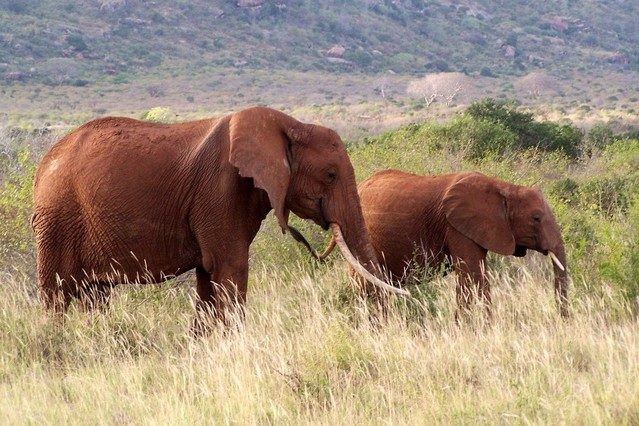Elephant’s Intelligence And Its Big Brains
People have been well aware of the fact the elephants are the largest mammal on earth but perhaps did not know that they also have a long life both in the wild as well as in captivity. They live up to the ripe age of 80, which is probably an average human being’s lifespan as well. Science and field research has proven that elephants are also one among the very few intelligent creatures on earth such as particular dolphins, apes, chimpanzees and even humans. The long-lived and highly smart animal is naturally the perfect focus and target for cognition reasoning experiments, considering its complex cranium structure, highly sophisticated neural circuitry, and large temporal lobe, of course, everything to do with brains.
Large brain size
Advanced studies and close examinations have long established, without reservation and with enough empirical evidence, the superior intellectual nature of the big brains of the elephants. Just regarding the sheer size of the brains, it is enormous. Out of all terrestrial mammals and the most intelligent organisms, the brain of an elephant is extraordinarily the biggest. It is even huger than that of a human being but resembles it in both structure and complexity.
Everything in proportion
Fascinatingly enough, the brain of the elephant is even denser than that of the brain of an average human being. It also implies that the brain density is in proportion to its weight. The brain of an average elephant is relatively very hefty and weighs in at 11 pounds. In comparison, the brains of bottlenose dolphins and humans – two other smart animals – weigh about three pounds. Given its relative size, elephants may be capable of more complexity than is understood or documented.
Cognitive processing abilities

Part of the reason they possess such superior capacity and commendable behavior is their brain structure Source: isciencemag
The elephant has a very complex brain structure because larger brains are more cognitively complex. The need for such a complex organ is evident considering the skills and behavior of these animals. One can’t judge the efficiency of the brain or how it works based on its size alone. But it offers a decent approximation and hints to the power of cognition. Its large-sized brain possesses highly developed cerebral cortex and hippocampus. They are responsible for cognitive processing abilities such as problem-solving and willpower. They are also responsible for the animal’s ability to empathize with others and mourn the death of their loved ones. Part of the reason they possess such superior capacity and commendable behavior is their brain structure.
Decision-making faculties
Nature has not bestowed survival instincts upon the elephant, and they are not born with them. It needs to learn these fundamental existence predispositions during infancy, childhood, and adolescence. Thankfully, elephants possess the greatest amount of cerebral cortex of all land animals.
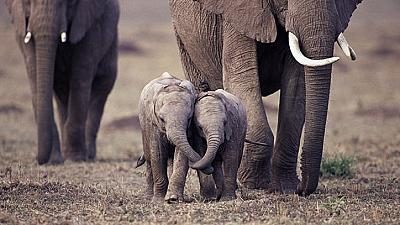
The convoluted neocortex of the elephant compensates for the lack of innate survival instincts Source: Africanews
The convoluted neocortex of the elephant compensates for the lack of innate survival instincts. They also enable the animals to have greater learning and knowledge retention capabilities as well as help them with making everyday decisions. These thick cortices comprise many neurons, which is an index of superior intelligence. Contextually, the brain of an elephant has as many cortical neurons as the brains of a human being. It also have larger pyramidal neurons than humans. In fact, this suggests that elephants might have learning skills superior to people. Von Economo neurons is involved in the ability to make quick decisions and social awareness. Scientists believed that they only existed in great apes, humans, and four species of dolphin. However, these neurons were recently discovered in the brains of the elephants as well.
Data recalling capabilities
Elephants have the largest temporal lobe relative to the size of its body among any land mammals. The temporal lobes of the elephant are even more superior than that of humans. They are that portion of the cerebral cortex responsible for communication, language, planning, spatial orientation, and working memory. The elephants use their temporal lobe to encode survival and identification details, imprinting the data to their memory to be retrieved later. The lessons learned include understanding their place in their social hierarchy, how to feed and use tools. Its brain is specially devised to accomplish learning, long-term memory, and social awareness. It is due to these qualities that the elephants have flashbacks and is the reason that they experience Post Traumatic Syndrome Disorder. The temporal lobes also have more foldings implying that they can store more information than other animals.
Great encephalization quotient
It was difficult if not impossible to measure precisely an elephant’s intelligence or how smart it is. But one traditional way of estimating the brain power and intelligence among animals was by examining the encephalization quotient.
How it works
The definition of encephalization quotient is the total amount of the mass of the brain vis-a-vis the total weight of its body. It measures the size of its brain against the size scientists determine it would be, based on the weight of its body. In other words, it compares the actual size of its brain against the projected brain size, based on its body weight. The smaller the ratio of body mass to brain mass, the dumber the animal is and higher the ratio, the smarter it is. So, the biologists set about measuring the encephalization quotient of the elephant to ascertain its intelligence. They found out that proportionally, the brain of the elephant is the most sizeable and thus the elephant has a relatively high encephalization quotient of 1.88.
Compared to others
To compare, humans typically have an encephalization quotient of 7, chimpanzees 2.5, and pigs usually score the lowest around .27. Using this, experts have observed their behavior and concluded that elephants score relatively high on encephalization quotient and therefore rank among the smartest in the animal kingdom. Female elephants who are leaders of the herds have greater encephalization quotient than their male counterparts. The higher encephalization quotient of the female elephants is because of the matriarchal social structure of their herds. The suggestion that elephants may have higher intelligence than is recorded based on its brain size is interesting as it opens up the field for much more research for cognitive neuroscientists.
5 Frequently Asked Questions About Elephant Brain
To receive a colourful digibook about elephant with videos, images and text, please fill out the following form or simply email us on safaris@safari-center.com

